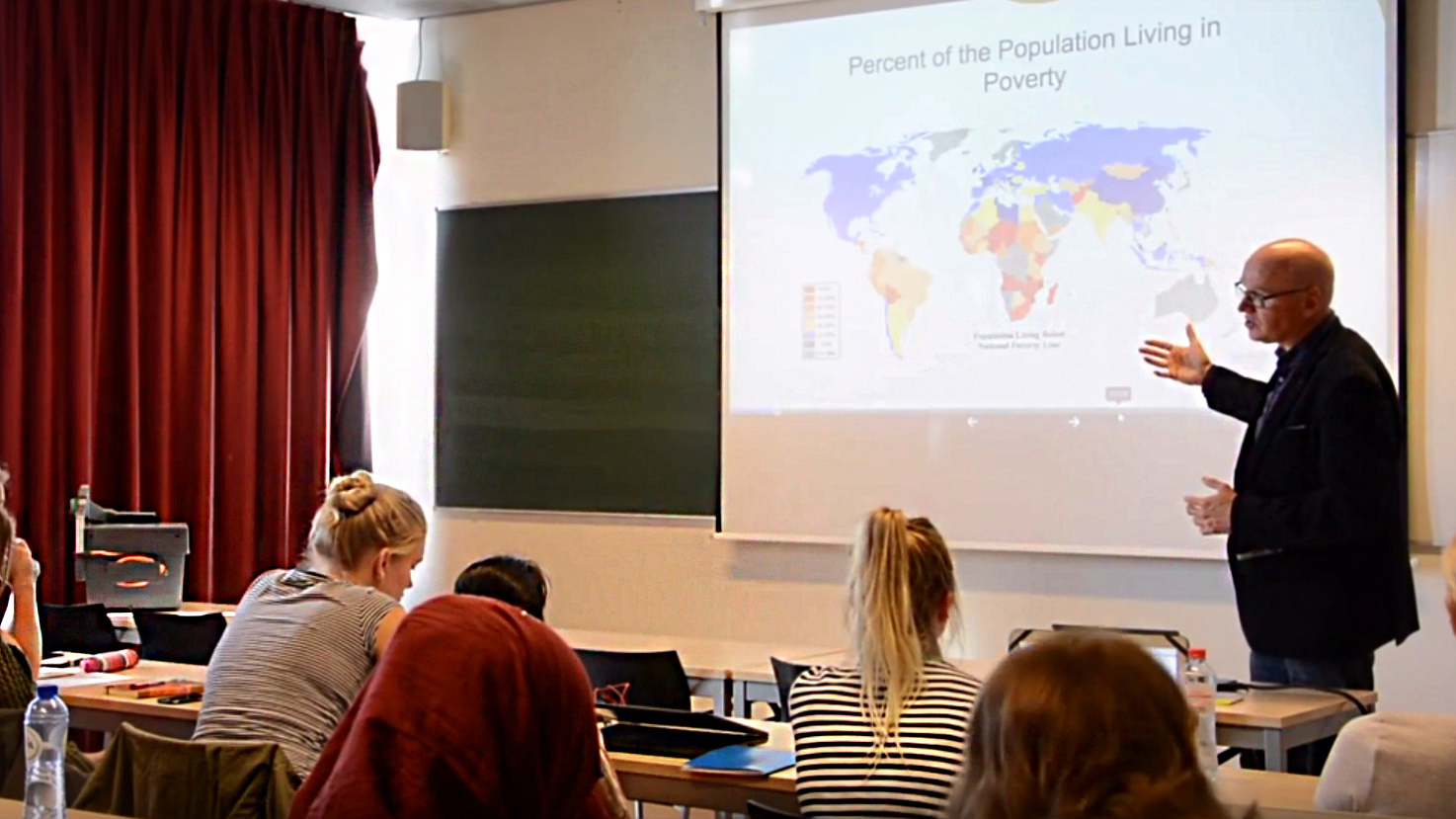
26 Sep Collaboration key to training students to become future global health experts
As the old expression goes, there is truly strength in numbers – especially when it comes to training the next generation of global health leaders.
Students in the Research Master’s in Global Health program recently completed the Addressing Disease Burden in a Global Context course with a unique delivery model: multiple expert guest lecturers and the opportunity to receive immediate feedback on assignments in time for the next day’s project to maximize learning and in-class time.
“I learned so much through this course; we were approached as colleagues not as students so I felt free to be more creative when it came to offering my own input and asking questions,” said Tessa Van Deelen, one of the students in the class. “The course provided a really good environment to learn in and our lecturers appreciated our prior learnings.”
Coordinated by the Amsterdam Institute for Global Health and Development in partnership with Vrije University, the four-week course included guest lectures from more than six subject matter experts to deliver a diverse and thorough curriculum, including a week of teaching by Oxford University Professor Eduard Sanders.
Each year, Prof. Sanders comes to The Netherlands from Kenya to teach one week of the course. Prior to his arrival, students are required to do pre-reading through an online, modular website on his area of expertise: the HIV epidemic as it relates to the most at-risk populations in low- and middle-income countries, specifically the LGBTQIA+ communities.
“We learn about the challenges students might encounter in their work and how to best address them,” said Prof. Sanders. “For example, we discuss how to ask about high-risk behavior and I share my own experiences and mistakes in asking the right questions. It’s important to show them what we [as researchers] go through to get where we are.”
Because the course topic is broad, bringing in subject matter experts helps to keep learning meaningful and engaging for students.
“The common theme is the burden of disease and the course covers topics such as areas of urbanization as a global issue, non-communicable diseases, critical care patients and surveillance in low-resource settings, antimicrobial resistance (AMR) and HIV, to name a few,” said Guus ten Asbroek, coordinator of the course, AIGHD education coordinator and Principal Educator at the Amsterdam UMC.
“Bringing in guest speakers gives students an opportunity to learn about a number of different areas from experts in that field and ask questions.”
For the students, the diversity in guest lecturers is beneficial to their learning.
“We continually get feedback each year that the students found the course and lectures meaningful and particularly the opportunity to get immediate feedback and ask questions,” added Guus.
As part of its core activities, the education team at AIGHD also contributes to Bachelor programs and plays a crucial role in mentoring PhD students from the University of Amsterdam and the Vrije Universiteit in collaboration with research organizations around the world.
For more information on the program, visit the VU University website.
[Photo: Guus ten Asbroek teaches the students in the Addressing Disease Burden in a Global Context course.]
